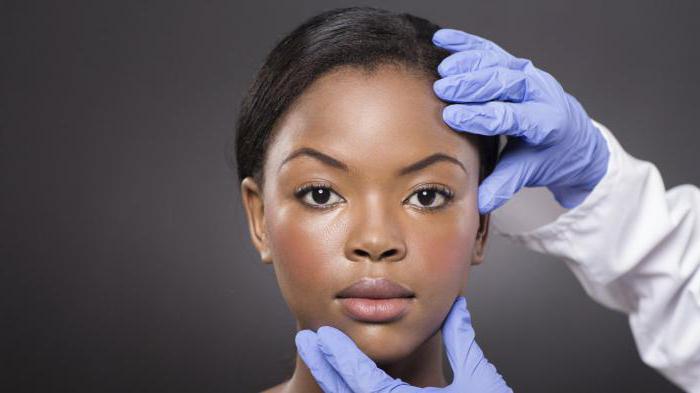Fear is the normal state of our psyche in the event of danger. It forces the body to take measures to protect. But when fears turn into a painful state, paralyzing the will and feelings, then talking about its biological significance is no longer worth it.
Such painful states of panic fear (phobia) have many different causes and objects. The fear of doctors is one of the social phobias that can lead to disastrous consequences for a person. And this phenomenon is even more absurd, because the doctor’s purpose is to bestow health and well-being. Fear of hospitals and doctors of various specializations is the topic of this article.
This is far from rare.
Everyone can remember the moments when he was seized by the fear of doctors. Most people manage to overcome this fear or simply try to hide it from others and not share their feelings with anyone.
Iatrophobia (from the Greek words ἰατρός - "doctor" and φόβος - "fear, fear"), or jatrophobia (fear of doctors) is inherent in 30% of the world's inhabitants. This is confirmed by the results of social surveys. At the same time, the leaders causing this phobia are dentists, gynecologists and surgeons - in this order. Therefore, the phobia of fear of dentists has a separate name - dentophobia or stomatophobia. The fear of injections is called trypanophobia, and the fear of surgery is called tomophobia. But we will use the general name of phobia of fear of doctors and hospitals - jatrophobia.
When fear becomes a phobia
For a normal person, anxiety and concern about their health and visiting a doctor, especially when there are objective reasons for this, is the norm. An exception to the rule are hypochondriacs, who feel good only when they feel bad. But when does ordinary fear or anxiety become a phobia? Think about it in the following cases:
- Fear becomes obsessive and irrational.
- Fear develops according to a clear program when a stimulus appears.
- The development of fear is exponential, with increasing intensity and persistent flow.
- The patient stubbornly remains critical of his fears.
You are exactly jatrophobic
If you or your friend is constantly interested in folk remedies and recipes of alternative medicine, and if you need to meet a person in a white coat, you get excessive sweating, severe anxiety, nausea and dryness in the oral cavity - you are on the way to phobia. Add to this the problems with pressure, uncontrollable trembling, sudden weakness and the lack of an adequate perception of the situation, and the patient has all the symptoms of a doctor’s fear on his face.
Psychotherapists distinguish several stages of the development of phobias. But you should know that this is the path to neurasthenia, neurosis of obsessive states, hysteria and other mental illnesses, which are treated by another doctor - a psychiatrist and often in stationary conditions.
Doctor himself
Diagnosis of phobias, their stages and clinical presentation is a matter for specialists. Only a professional will be able to analyze all groups of symptoms (physical, psychological and behavioral), question the patient and his surroundings, assess the dynamics of attacks of intense fear and make a diagnosis of anxiety-phobic disorder.
Avoiding Disguise
To get rid of exhausting experiences of anxiety and panic attacks, anxious persons use a method of avoidance. In the absence of a traumatic stimulus, as a rule, patients show a critical attitude to their phobia. And this is one of the proofs of its existence.
By the way, the fear of doctors is far from the most harmless in the list of social phobias. After all, the patient does not go to the doctor, often starting the disease to a critical stage. Or self-medicates - folk remedies, lotions or even mantras. And if the disease is really serious, the expression "heal yourself to death" becomes no joke. And the meeting with the doctor whom the patient was so afraid of will take place. Only a doctor is likely to arrive by ambulance.
Completely different reasons
A phobia of fear of doctors in general and specific specialists in particular develops for various reasons. Our psyche is multi-faceted, and the emergence of pathological fears is also diverse. Here is a list of just a few:
- Experienced personal experience. Pain, unsatisfactory consequences of treatment, hostility to the doctor impose a negative in the subconscious, form a worldview and attitude towards doctors and medicine in general.
- The experience of long ill relatives, friends, acquaintances. Long and unsuccessful treatment can form a persistent negative attitude to medicine.
- Information of the media and television. That is why today there are so many TV shows about good doctors. Is this not an indicator of the number of jatrophobes in modern society.
- Vivid negative childhood memories. Children tend to exaggerate the situation, they are more likely to experience and more emotionally perceive the surrounding world. With growing up, children's impressions become even more exaggerated and thought out, they can go into the subconscious and surface as a reaction of fear to certain stimuli of the senses (smell, color, sound).
- Gene memory. Oddly enough, but sometimes the development of fears is facilitated not by personal memories, but by the memory of generations. This area of psychiatry is just developing, but there are already certain precedents.

Fear of doctors: what to do?
Phobias of mild forms may not be visible to others and can be controlled by the patient. Fear of dentists or any other medical specialists is widespread, but most manage to get the better of their fears and manage stress on their own.
Here all means are good - the hand of a friend, self-hypnosis, relaxation or mantras. More severe forms of iatrophobia require corrective therapy. The modern branch of psychiatry and psychotherapy has a fairly wide range of tools. From group and individual therapy to the use of pharmacological agents. The psychotherapist who needs to be consulted will choose a safe and effective method of treatment.
Who has big eyes? Have fear
People in white coats have been accompanying a modern man since his birth. A born baby constantly sees doctors and often their appearance is not associated with pleasant sensations. Everyone who gave their child a professional massage in infancy agrees with this postulate. This is just a massage, and what can we say about taking tests and other unpleasant procedures. No wonder children are afraid of doctors.
The task of the responsible parent is to instill in the child an adequate attitude to visiting the doctor and medical institution. What is clear is not so scary. Explain to the child the essence and necessity of the procedures and support emotionally - this means not to aggravate the fears that have arisen. Do not scare children with people in white coats! Believe me, they are already afraid of them.
Unfortunately, neither we nor our children are safe from illnesses. And the adoption of adequate, albeit more often, and unpleasant methods of treatment is the key to a speedy and successful recovery. And for jatrophobia you can pay too high a price.
Summarizing
Remember, the only doctor that patients are not afraid of is a pathologist. This, of course, is a joke. Modern medicine has already reached the level of service where the patient can choose both a doctor and the means of his treatment. There are enough examples - the woman in labor makes a decision about anesthesia, and today there are plenty of options for removing stones from the kidneys.
Remember, your health is in your hands. Systematic preventive examinations, healthy and wholesome foods, moderate sports activities minimize your communication with people in white coats. Love and take care of yourself and people you love. Be healthy!
Phobias you didn't know about
In conclusion, I would like to list several phobias that arose in our century. Some sound pretty strange, but that doesn't make them unimportant:
- Autophobia. The disease of the 21st century is the fear of being alone. Paradoxically, the development of technology only exacerbates such fears.
- Allodoxaphobia. Fear of someone else’s opinion. Some are so afraid to find out what others think of them, that they become voluntary autophobes.
- Chronophobia In our century of enormous speeds, the fear of the passing and lost time gives rise to workaholics who suffer the first heart attack at the age of forty.
- Retterophobia. Fear of spelling mistakes. Yes, and it happens. Obsessed with this phobia do not write SMS and are afraid of computers.
- Ritifobia - a phenomenon stimulated by advertising. Women are panicky afraid of wrinkles. Although why women?

- Concecotealeophobia. The popularity of sushi among European gourmets led to the emergence of phobia of Japanese sticks.
- Agmenophobia. Such people can be seen in supermarkets rushing from cash desk to cash desk. Their fear is based on the belief that the neighboring line is moving faster.
- Nomophobia - fear of forgetting your mobile phone at home. The very thought of it throws the nomophobe into a shiver.
- Haptophobia. Fear of touching outsiders. Inveterate drivers of a personal car experience an attack of this phobia in public transport.
- Decidophobia It is often found among young users of social networks, when they can’t even choose socks without consulting all friends. Do not believe? Ask sellers in stores - they will not tell you that.
- Selahophobia. Films about sharks have led to even such a fear. Moreover, the inhabitants of areas very far from the oceans.
- Terrorophobia. Panic fear of the possibility of being at the epicenter of a terrorist act.
- Paraskavedecatriaphobia. Such people are horrified when the 13th falls on Friday.